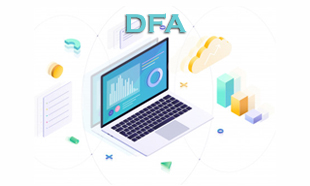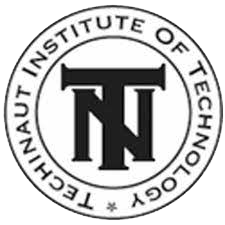0
Diploma in Financial Application (DFA) course at Shri Sai Computer Coaching Institute is designed to provide students with a solid foundation in financial applications.
In the dynamic world of finance, proficiency in financial applications is essential for success. SHRI SAI COMPUTER COACHING INSTITUTE, located in Yenbodi, Amdi, Chandrapura, Maharashtra, offers a six-month Diploma in Financial Application (DFA) course to equip individuals with the knowledge and skills necessary to excel in financial applications. As a franchisee of Techinaut Institute of Technology, the institute provides a comprehensive curriculum that covers the basics of computers, financial applications, and accounting software.
INTRODUCTION OF THE COURSE:
The Diploma in Financial Application (DFA) course at SHRI SAI COMPUTER COACHING INSTITUTE is designed to provide students with a solid foundation in financial applications. Whether you are a student looking to enhance your employability or a professional seeking to upgrade your skills, this course offers a comprehensive curriculum that covers the fundamentals of financial applications, including accounting software, spreadsheet management, and financial analysis.
THE OBJECTIVE OF THE COURSE:
The DFA course aims to equip students with the knowledge and skills to utilize financial applications in various professional settings effectively. The course aims to give students a solid foundation in financial applications, including accounting software, spreadsheet management, and financial analysis. By the end of the course, students will be proficient in using financial applications to manage financial data, analyze financial information, and make informed financial decisions.
COURSE CURRICULUM:
1. Basic of Computer:
The course begins with an introduction to the basics of computers, including their history, components, and functions. Students learn about the evolution of computers and their applications in various industries. They also gain practical experience using computer hardware and software, including input and output devices, operating systems, and application software.
2. Computer Appreciation:This module delves deeper into the role of computers in the field of finance. Students learn about the impact of computers on financial management, including their role in financial analysis, forecasting, and decision-making. They also explore using computers in financial applications, gaining a deeper understanding of their importance in the modern financial landscape.
3. Word Processing:Word processing is a fundamental skill for anyone working with computers. In this module, students learn how to create, edit, and format documents using word processing software. They also learn about the different features of word processing software, including spell check, grammar check, and document layout, gaining practical experience in producing professional-quality documents.
4. Spreadsheet Package:Spreadsheets are powerful tools for financial analysis and management. In this module, students learn how to create, format, and analyze data using spreadsheet software. They learn about features such as formulas, functions, charts, and graphs, gaining practical experience in using spreadsheets to solve real-world financial problems.
5. Presentation Package:Presentations are essential for communicating financial information in the modern workplace. In this module, students learn how to create, design, and deliver effective presentations using presentation software. They learn about features such as slide design, animation, and multimedia integration, gaining practical experience in creating dynamic and engaging financial presentations.
6. Introduction to the Internet:The Internet is a valuable resource for financial information and research. In this module, students learn how to use the internet to access financial data, conduct research, and communicate with clients and colleagues. They also learn about internet security and privacy, gaining practical experience in safely and responsibly using the internet.
7. Email:Email is a vital communication tool in the field of finance. In this module, students learn how to create, send, and manage email messages using email software. They learn about features such as email composition, attachments, and folders, gaining practical experience using email effectively for professional communication.
8. Introduction to Tally:Tally is a popular accounting software many businesses use. In this module, students learn the basics of Tally, including its features, functions, and applications. They learn how to set up a company in Tally, create and manage accounts, and generate financial reports, gaining practical experience using Tally for financial management.
9. Administration in Tally:This module covers advanced topics in Tally administration, including user management, data security, and backup procedures. Students learn how to create and manage user accounts, set up data security measures, and perform regular backups to protect financial data.
10. Managing Groups, Ledgers, and Vouchers:In this module, students learn how to create and manage groups, ledgers, and vouchers in Tally. They learn about the different types of groups and ledgers, their functions, and how to create and manage them effectively. They also learn how to create and manage vouchers, including sales, purchases, and payments.
11. Cost Centres and Cost Categories:Cost centers and cost categories are essential for tracking and managing costs in Tally. In this module, students learn how to create and manage cost centers and categories in Tally. They learn about the different types of cost centers and categories, their functions, and how to use them effectively for cost tracking and management.
12. Introduction to Budgets:Budgets are essential for planning and managing finances in Tally. In this module, students learn how to create and manage budgets in Tally. They learn about the different types of budgets, including revenue, expense, and capital, and how to use them effectively for financial planning and management.
13. Introduction to Voucher:Vouchers are used to record financial transactions in Tally. In this module, students learn about the different types of vouchers, including sales vouchers, purchase vouchers, and payment vouchers. They learn how to create and manage vouchers in Tally, including entering voucher details, verifying vouchers, and posting vouchers to ledgers.
14. Currencies (Multiple Currencies and Foreign Exchange):Many businesses deal with multiple currencies and foreign exchange transactions. In this module, students learn how to manage multiple currencies and foreign exchange transactions in Tally. They learn about the different types of currencies, their exchange rates, and how to record foreign exchange transactions effectively in Tally.
15. Inventory Information:Inventory management is essential for businesses that deal with physical goods. In this module, students learn how to manage inventory information in Tally. They learn about the different types of inventory items, their stock levels, and how to record inventory transactions effectively in Tally.
16. Voucher Entry:Voucher entry is recording financial transactions in Tally. In this module, students learn how to enter vouchers in Tally, including sales vouchers, purchase vouchers, and payment vouchers. They learn about the different types of voucher entries, their functions, and how to enter voucher details accurately in Tally.
17. Displaying Information from Tally:Tally provides various tools for displaying and analyzing financial information. In this module, students learn how to display information from Tally, including generating financial reports, viewing ledger details, and analyzing financial data. They learn about the different display options available in Tally, including drill-down reports, graphical representations, and customizable reports.
18. Introduction to Taxation:Taxation is an essential aspect of financial management. In this module, students learn about different types of taxes, including income, sales, and service taxes. They learn how to manage taxation in Tally, including calculating taxes, recording transactions, and generating tax reports.
19. Introduction to Payroll:Payroll management is essential for businesses that have employees. In this module, students learn how to manage payroll in Tally, including calculating salaries, deducting taxes and other deductions, and generating payroll reports. They learn about the different aspects of payroll management, including employee attendance, leave management, and statutory compliance.
CONCLUSION:
The Diploma in Financial Application (DFA) course at Shri Sai Computer Coaching Institute offers a comprehensive curriculum covering financial application fundamentals, including accounting software, spreadsheet management, and financial analysis. Whether you are a student looking to enhance your employability or a professional seeking to upgrade your skills, this course provides the knowledge and practical experience necessary to excel in financial applications. Enroll today and take the first step toward a successful career in financial management.
Lectures = 130 HRS
Practical/Tutorials = 130 HRS
Total = 260 HRS


